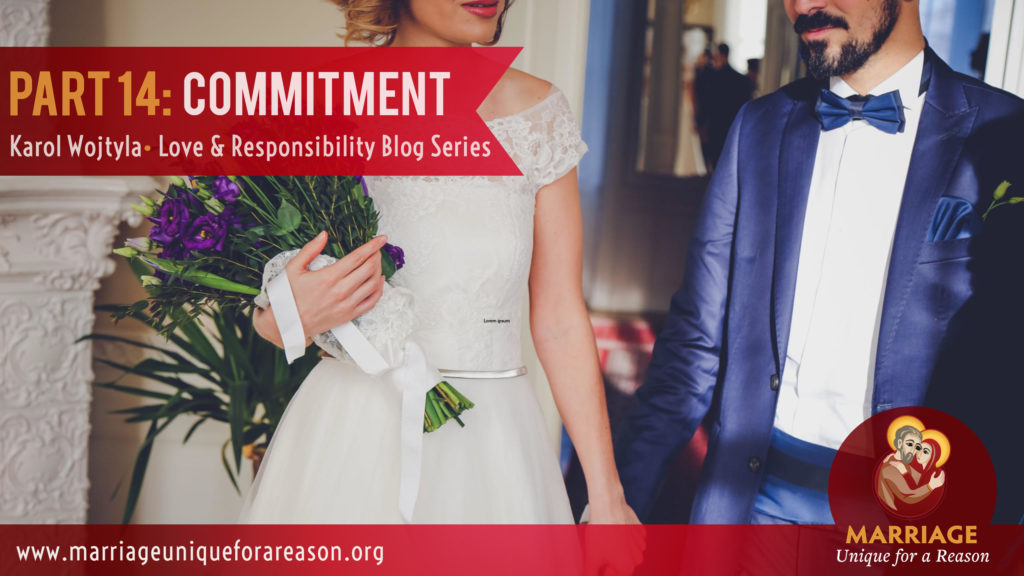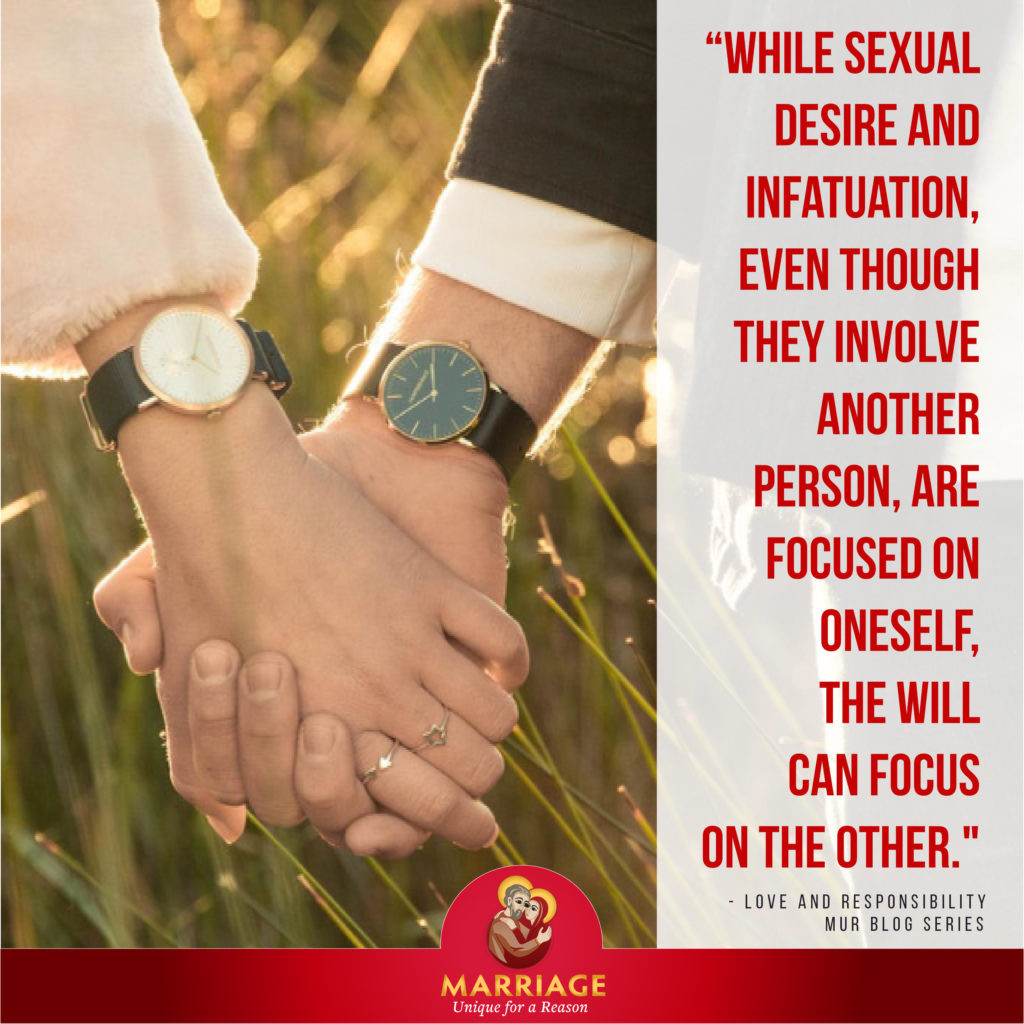
True knowledge for True Love
“Only true knowledge of a person makes it possible to commit one’s freedom to him or her,”[i] Wojtyla writes at the beginning of this section of Love and Responsibility. While giving up or limiting one’s freedom sounds unpleasant (especially to American ears), Wojtyla notes that, “Freedom exists for the sake of love.”[ii] In fact, human beings want to use their freedom to love—and not just to love for a little while but to love in a permanent, irrevocable way. “Forever” is implicit in “I love you,” not something added on. If someone said, “I love you today, but I’m not sure about tomorrow,” the other person would rightly respond, “Then you don’t love me at all.”
Wojtyla notes that the choice of loving another person—keeping in mind that love is the affirmation of the person—must be free. It cannot be made out of coercion or even passion. Wojtyla says that a person’s will “is usually the arena for a struggle  between the sexual instinct and the need for freedom.”[iii] Someone may have to conciously struggle against their bodily desires and emotions in order to see the other person clearly and to treat them as a person, not an object. “Willed love expresses itself above all in the desire of what is good for the beloved person,”[iv] Wojtyla writes.
between the sexual instinct and the need for freedom.”[iii] Someone may have to conciously struggle against their bodily desires and emotions in order to see the other person clearly and to treat them as a person, not an object. “Willed love expresses itself above all in the desire of what is good for the beloved person,”[iv] Wojtyla writes.
Focused on Oneself vs. Focused on the Other
While sexual desire and infatuation, even though they involve another person, are focused on oneself, the will can focus on the other. One can can desire happiness for the other in an unselfish way—and not just momentary happiness but the ultimate happiness of heaven. “[Love in the will] desires the absolute good, the unlimited good, happiness for that person, and in this way compensates and atones for the desire to have that other person, a person of the other sex, for itself.”[v] Rather than denying that the body and emotions are driving someone toward relationships with the other person, the will acknowledges it and seeks to shape and form what is happening into mature love.
Sexual desire and emotional infatuation want to take; love wants to give. This is the “divine aspect of love,”[vi] the fact that to love someone, “is really to desire God for that person.”[vii] In your relationships, can you say that you desire God for  the other person? Wojtyla notes that “only people of profound faith”[viii] see this truth. Wojtyla notes that it is sometimes a great discovery when a person realizes that he can put another person first, freely and joyfully. A person who loves may sacrifice much without thinking too much about it. Think of parents who constantly put their children’s needs before their own. “Love is indeed the highest of moral values. but one must know how to transfer it to the ordinary affairs of everyday life. This is where the problem of educating love arises.”[ix] This ability to love in action shows a person’s capacity for greatness, but this greatness is often manifested in small gestures of tenderness or sacrifice: getting up before one’s spouse to start the coffee, complimenting him or her, etc. Marriage means doing “small things with great love” (as St. [Mother] Teresa of Calcutta would say).
the other person? Wojtyla notes that “only people of profound faith”[viii] see this truth. Wojtyla notes that it is sometimes a great discovery when a person realizes that he can put another person first, freely and joyfully. A person who loves may sacrifice much without thinking too much about it. Think of parents who constantly put their children’s needs before their own. “Love is indeed the highest of moral values. but one must know how to transfer it to the ordinary affairs of everyday life. This is where the problem of educating love arises.”[ix] This ability to love in action shows a person’s capacity for greatness, but this greatness is often manifested in small gestures of tenderness or sacrifice: getting up before one’s spouse to start the coffee, complimenting him or her, etc. Marriage means doing “small things with great love” (as St. [Mother] Teresa of Calcutta would say).
[i] Wojtyla, Karol. Love and Responsibility (San Francisco: Ignatius Press, 1993), p. 135.
[ii] Ibid, p. 135.
[iii] Ibid, p. 136.
[iv] Ibid, p. 137.
[v] Ibid, p. 137.
[vi] Ibid, p. 138.
[vii] Ibid, p. 138.
[viii] Ibid, p. 138.
[ix] Ibid, p. 139.

Love is giving people the freedome to be the way they are not trying to make them the way you want. Love is giving freedom to others. A friend is someone who gives you total freedom to be yourself.